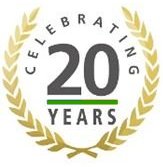|
Please Consider Helping to Keep This Website Online.
|
|
Goibniu by Steve Toase Goibniu, Smith god appears in the Mythological cycle as one of the major figures in the second battle of Mag Tuired. A member of the Tuatha dé Danaan he is the brother of Dian Cecht (The Healer) [Rees p35.] Berresford-Ellis refers to him as having a second brother called Samhain, he also states that in some texts he has two other brothers, Credne the Goldsmith and Luchtar. However there doesnt appear to be a reference to parentage within the texts. His forge is placed at Siabh an larinn nr Lough Co Leitrim [Berresford Ellis] In their study of the Insular Celtic stories the Rees brothers indicate various titles for Goibniu including being one of the prophets of the heathens, one of the five leaders of the Tuatha dé Danaan along with Dagda, Ogma, Dian Cecht and also as one of the chiefs. This may give some indication of the position that he was seen to hold and consequently the importance of smiths (See Shamanism in Gaelic Culture). In the second battle of Mag Tuired, Goibniu is summoned by Lug, Ogma and the Dagda. When Lug asks how each will contribute Goibniu promises to provide a new weapon in place of everyone destroyed "No spearpoint which my hand shall forge shall make a missing cast. No-one it pierces shall taste life afterwards" [Rees, p36]. He created spears and swords with three blows of his hammer. During the saga of the Second battle of Mag Tuired the Fomoire send Ruadan (Son of Bres and Brighid) to spy on Goibniu. Ruadan plunges a spear into Goibniu who removes it and spears Ruadan with it. This leads to the first keening in Eriu, the mourning of Ruadan by his mother Brighid.[Rees, p37]. Goibniu precides over the otherworld feast initiated by Mananaan, Fled Ghoibner, where the ale of Goibniu conferring protection from disease and death is served [Berresford Ellis, p137] [Rees, pp51,52] Contributed by: Steve Toase
Sources: |
|
'Clannada na Gadelica' is a trademark of the Clannada na Gadelica.
|
|
Heart in Hands
Support the |

